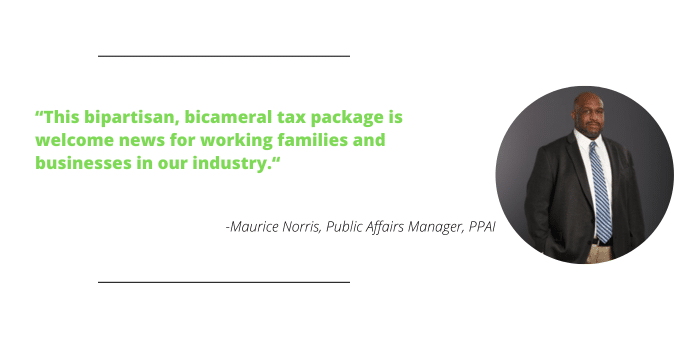President Joe Biden is doubling down on protecting worker rights around the world, issuing a “Presidential Memorandum” that the promotional products industry should pay heed to.
The memorandum, signed last month, directs federal departments and agencies to uphold global standards and enforce rules against unfair labor practices. Several priorities mentioned in the memo are relevant to the promo industry, particularly in the name of corporate social responsibility (CSR).
“This memo reinforces the importance of adhering to state and federal mandates covering labor issues,” says PPAI Public Affairs Manager Maurice Norris, MAS. “There is clear intent for sustained vigilance in this area, as evidenced by the president’s directive for the Department of Homeland Security to refresh its enforcement strategy so soon after the most recent update.”
Eradicating Forced Labor
The memo instructs the federal Forced Labor Enforcement Task Force to update the Uyghur Forced Labor Prevention Act (UFLPA) enforcement strategy, which was last updated in August.
- Signed into law in December 2021, the UFLPA bans all imports from China’s Xinjiang province under the presumption that all goods from the area are produced with forced labor and imposes sanctions on foreign individuals responsible for forced labor in the region.
“This memo also bolsters the argument for supply chain visibility and mapping,” Norris says. “It’s increasingly important for companies to ensure that they can prove there’s no forced labor in their supply chains, from a consumer perspective as well as involving government mandates. Fortunately, there are numerous tools available to accomplish this.”

PPAI has been tracking this issue for several years and has prepared guidance to assist industry companies in tracking where their goods, including components and raw materials, are manufactured.
- The Supply Chain Problems in Xinjiang webinar and the Human Rights And Forced Labor In The Supply Chain webinar discuss whether you can say for certain that there’s no forced labor in your supply chain, as well as the practical implications of the UFLPA.
- The Supply Chain Mapping And Traceability webinar offers a wealth of information to help companies dig deeper into their supply chains and avoid the presence of forced labor.
- PPAI also has resources on its corporate responsibility page to help promo firms navigate the legal requirements.
The memo calls for federal departments to consider developing a comprehensive, interagency effort to “eradicate forced labor from global business operations and supply chains” through forced labor import prohibitions and collaboration with workers, industry and civil society.
Furthermore, the memo suggests preference programs, general enforcement and labor provisions in economic frameworks as potential ways to promote internationally recognized labor standards and “meaningful remediation” of labor rights violations.
CSR’s Role In Labor Standards
The memo calls for the federal government to strengthen engagement with foreign governments, workers, labor organizations, trade unions and the private sector to protect and promote internationally recognized labor rights, including the prevention of forced labor, child labor and other abuses.
- In terms of partnering with the private sector, the memo suggests “joint worker-management labor compliance initiatives” that include robust labor rights compliance monitoring.
The memo also mentions the importance of protecting labor rights as part of the “global transition to clean energy,” directing federal agencies to engage with workers and labor unions when developing energy policies.

Of course, the promo industry is making significant strides in ensuring its merchandise is environmentally responsible and meets clients’ sustainability needs. Several promo companies are leading the way with sustainable production and operations, clear and detailed communication of their practices and accomplishments, and tools to make environmentally responsible products easier to source.
- The 2023 Product Responsibility Summit focused heavily on sustainability and supply chain transparency, providing education to attendees on how to limit their environmental impact.
“This memo helps highlight what many in our industry already know – sustainability is more than an eco-friendly product,” says Elizabeth Wimbush, director of corporate responsibility and sustainability at PPAI. “The ‘S’ is just as important as the ‘E’ in ESG. It’s where diversity, equity and inclusion work lands. It’s about human rights, basic fairness and equality.”


